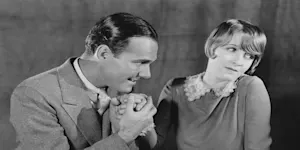What Makes This Word Tick
"Bovine" is one of those words that seems to moo its way into conversations. It immediately conjures up images of lazy cows chewing cud in the sunshine. Quite literally, "bovine" relates to cattle, and it's often used to describe traits characteristic of these gentle giants—think slow, steady, and maybe just a tad oblivious.
If Bovine Were a Person…
Picture a laid-back neighbor who is never in a rush. They amble through life at their own pace, often wearing an easygoing smile. They might be the type to avoid hustle and bustle, preferring instead a quiet day in the garden, absorbing the sun, like a happy cow in a pasture.
How This Word Has Changed Over Time
Originally from the Latin "bovinus," meaning "of or like a cow or ox," "bovine" hasn't strayed far from its roots. While the term remains linked to cattle, it’s found amusing use in describing sluggish human behavior too—sometimes with a hint of affectionate teasing.
Old Sayings and Proverbs That Use Bovine
"Bull in a china shop" might be the closest proverbs come to invoking the bovine spirit, albeit more forcefully. Another saying, "to have a cow," while more modern, matches the theme—capturing the unexpected explosion of emotion sometimes associated with these placid creatures.
Surprising Facts About Bovine
Did you know cows have panoramic vision? These easygoing animals can see almost 360 degrees without moving their heads, a handy trait that’s much less common among humans. Additionally, they're social creatures, forming close bonds and experiencing a range of emotions.
Out and About With This Word
"Spotted some bovine charm on my walk through the countryside today," is something you might say if you encountered a field of curious cows on your afternoon stroll. The word comfortably resides in picturesque settings, where cattle often are.
Pop Culture Moments Where Bovine Was Used
In classic animation, Ferdinand the Bull epitomizes the bovine nature as a peaceful, flower-loving creature. Meanwhile, the term gets playful, exaggerated depiction in various comedy sketches, especially when humans mimic the leisurely pace of a cow.
The Word in Literature
"Bovine" may not roam freely through literature, yet it finds its home in pastoral novels and poems, where authors paint serene rural life. It conveys a tone of calm and steadfastness—often reflecting characters who display patience or fulfillment in simplicity.
Moments in History with Bovine
In the 18th century, cattle drove the economy of the American West. Describing the pioneers' labor-intensive cattle drives, "bovine" would aptly capture the long, slow treks across endless prairies, steering herds to market towns and railheads.
This Word Around the World
In India, cows are revered and considered sacred in Hindu culture. The word "bovine" thus carries a spiritual and cultural weight, signifying peace and reverence that transcends mere agriculture.
Where Does It Come From?
Tracing back to Latin roots, "bovine" is tied directly to the word "bovinus," which originates from "bos," meaning cow. This lineage highlights our long-standing connection to these domesticated animals as essential companions in agriculture.
How People Misuse This Word
Sometimes "bovine" is mistakenly used to describe laziness in a negative light, forgetting its neutral or even affectionate connotations. It's less about criticizing slowness, and more recognizing a steady, unhurried approach.
Words It’s Often Confused With
Canine: Relates to dogs, often confused due to similar sound.
Equine: Pertains to horses, sharing the '-ine' suffix with "bovine."
Cervine: Refers to deer, easily muddled with other animal-related terms.
Additional Synonyms and Antonyms
Synonyms for "bovine" might include "cattle" or "oxen," while antonyms could be "energetic" or "quick."
Want to Try It Out in a Sentence?
"The bovine calm of the old farmer was a stark contrast to the chaotic city buzz that his out-of-town guests were used to."
















